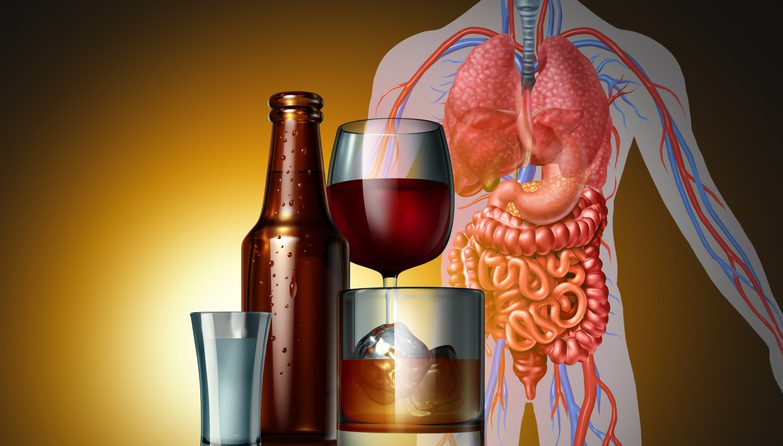A report from the National Institute on Alcohol Abuse and Alcoholism (NIAAA) of the results of the 2021 National Survey on Drug Use and Health (NSDUH) shows in the United States during the past month about 21.5%, or 60 million people, ages 12 and over, reported binge drinking. Although many people think of college students when they think of binge drinking, this type of dangerous alcohol consumption is a concern among all age groups.
What is Binge Drinking?
According to the NIAAA, binge drinking is a pattern of consuming alcohol that causes an individual’s blood alcohol concentration (BAC) to reach 0.08% or higher. Typically a woman’s BAC will reach 0.08% within two hours if she drinks four or more alcoholic beverages, and a man’s BAC will reach that point if he drinks five or more alcoholic drinks in the same time period.
One alcoholic drink is 5 ounces of table wine containing 12 percent or less alcohol, eight or nine ounces of malt liquor containing seven percent or less alcohol, or 1.5 ounces of liquor (80-proof distilled spirits or 40 percent alcohol).
Dangers of Binge Drinking
Drinking alcohol is legal and socially acceptable for people 21 and older. Many people drink it safely in moderation. But alcohol is a mind-altering substance. It is a central nervous system depressant that acts as a natural tranquilizer; it reduces the body’s stress response and lowers heart rate, blood pressure, body temperature, and anxiety levels. At the same time, it increases the levels of dopamine the brain releases, making the person feel relaxed and happy.
Six of the main dangers of binge drinking are listed below.
- Unintentional Accidents and Injuries
As the person consumes more alcohol, they lose control quickly. Their ability to make good decisions becomes impaired. They cannot think clearly, their reflexes are slow, and their sense of balance and coordination is poor. They are at risk of getting injured falling down stairs, tripping on objects, or doing any number of simple tasks. Alcohol lowers their inhibitions, making them more likely to take risks. Risk-taking may lead to driving while intoxicated, dangerous unprotected sexual encounters, or taking part in foolish or criminal activities. If a person becomes aggressive or violent when drunk, they may commit domestic violence, sexual or physical assault, or homicide. - Compromised Brain Development
When a young person drinks alcohol while their brain is still developing, it can change the brain in a negative way. It causes deficits in the prefrontal circuitry resulting in poorer memory performance. Memory impairment generally causes a lower IQ, cognitive problems, difficulty learning, and poor social skills. - Diseases
Binge drinking damages the body, increasing the individual’s chance of developing a chronic disease, such as heart disease, high blood pressure, or liver disease. Binge drinkers are also at a higher risk of suffering from strokes and developing colon, esophagus, throat, or breast cancer. - Miscarriage, Stillbirth, and Fetal Alcohol Syndrome
Most people know a pregnant woman should not drink alcohol. Yet some still binge drink. Sometimes a woman may not be aware she is pregnant or does not believe alcohol can harm her unborn baby. Regardless of the reason, drinking while pregnant can cause fetal alcohol syndrome. This disorder causes cognitive, developmental, and behavioral problems that will affect the child for their lifetime. Drinking alcohol also puts a pregnant woman at a higher risk of miscarrying or having a stillbirth. - Alcohol Dependence and Addiction
People who binge drink have a high risk of developing a dependence on alcohol. The younger a person starts binge drinking, the higher the chance of them developing alcohol dependence. Alcohol dependence can quickly and easily become an alcohol addiction. With alcohol addiction comes the possibility of many other problems, such as financial or legal difficulties, physical and mental health conditions, and relationship problems. - Alcohol Poisoning or Alcohol Overdose
If a person drinks too much alcohol, it can become poisonous in their body. Alcohol poisoning, also called an alcohol overdose, occurs when a person’s bloodstream contains so much alcohol that areas of the brain begin to shut down. Symptoms of alcohol poisoning include difficulty remaining conscious, extreme mental confusion, vomiting, slow heart rate, difficulty breathing, clammy skin, low body temperature, no gag reflex, and seizures. Alcohol poisoning can lead to irreversible brain damage and death.
If You Need Help
If you or a person you care about is struggling with addiction, we can help. At Canyon Vista Recovery Center in Mesa, Arizona, you will get the help you need to regain control of your life. Using a combination of psychiatric, clinical, medical, and holistic approaches, our specialists will guide you as you acquire the skills you need to live a sober life.





